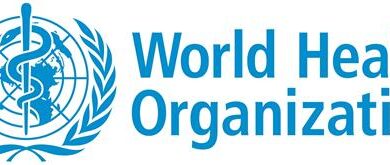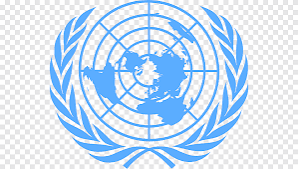Experts Blame Emerging, Reemerging of Infectious Diseases On Man’s Activities

L-R: Sub-theme “Achieving Universal Health Coverage Through Mandatory Health Insurance” Speaker, Mrs Aisha Haruna Abubakar, Lagos Coordinator, National Health Insurance Authority (NHIA); Theme “ Emerging and Re-emerging Infectious diseases: Implications and Solutions” Speaker, Dr Japhet Olugbogi; Chairman of occasion, Dr Jimmy Arigbabuwo; Prof Stella Smith who presented a paper on “Helicobacter Pylori: The Peptic Ulcer Bug, Neglected and unrelenting; Representative of Lagos State Commissioner For Health, Prof Akin Abayomi, Dr Abimbola Osinowo; HEWAN member, Yinka Shokunbi: HEWAN President, Mrs Chioma Obinna; Representative of the Chief Medical Director, Federal Medical Centre, Ebute Metta, Dr Adedamola Dada, Femi Ajoola during the presentation of award of excellence to Prof Akin Abayomiat the HEWAN 2022 aational Symposium In Lagos.
*Call For Timely Reporting Of Infection, Vaccination
Medical Experts have traced the causes of emerging and re-emerging infectious diseases to man ‘s activities with wild animals even as they proffer solutions to curb the menace.
Speaking during the 2022 Health Writers Association of Nigeria (HEWAN) Annual Symposium and awards with the theme: “Emerging and Re-emerging Infectious diseases: Implications and Solutions” a public health Physician, Dr Japhet Olugbogi identified some of the infectious diseases to include HIV, SARS, Lyme disease, Escherichia coli O157:H7 (E. coli), hantavirus, dengue fever, West Nile virus Zika virus, Ebola, MERS, Chikungunya, Flu Viruses, H1N1 Influenza Virus (Swine Flu), Avian Influenza (Bird Flu), Covid19 and Monkeypox.
Olugbogi said the major cause of the problem remains man’s contact with wild animals and bird’s flu.
Other causes, according to him, include known organisms (agents) that have spread to new areas or countries; previously unknown infectious organisms; previously known organisms whose role in causing diseases have been missed and re-emergence of infectious organisms whose incidence of disease had gone down in the past but has now re-surfaced (re-emerging infectious diseases).
Dr Olugbogi defined Emerging Infectious Diseases as “infections that have recently appeared within a pop or those whose incidence or geographic location/range is increasing rapidly or threatens to increase in the near future.
“Those diseases whose incidence in humans have increased in the past two decades or threatened to increase, outbreaks of diseases which were not known before (NIA &ID), persistence of infectious diseases that cannot be controlled.”
He said these diseases do not respect national boundaries and are threat to health workers and populations.
Dr. Olugbogi also defined Re-emerging Infectious Diseases as “Diseases that surface after they have been controlled. Reemergence may be caused by: disruption of public health measures for diseases that were once under control, appearance of new strains of known disease-causing organisms; human behavior e.g antibiotics resistance which has allowed a return of diseases that once were treatable and controllable.”
He said “Reemerging diseases include malaria, tuberculosis, cholera, pertussis, influenza, pneumococcal disease, and gonorrhea,” noting that “there may be an ongoing outbreak of some diseases already under control in some areas at others places.”
Dr Japhet said research has shown that there are 1400 known human pathogens, 60% of which are transmitted to humans through animals and depend on an animal reservoir for survival.
An additional 5–10% according to him, is environmentally transmitted, and the remainder is through human-to-human transmission the proportion of zoonotic infections among emerging infection diseases (EID) is even higher (73%), indicating that the human–animal route is a big risk for occurrence.
He said “Most of the established human pathogens started from animals,” adding that “emerging infectious disease events are dominated by zoonoses (60.3% of EIDs): the majority of these (71.8%) originate in wildlife,”
Giving examples, Dr Japhet Olugbogi said “severe acute respiratory virus, Ebola virus), and are increasing significantly over time.”
He stated that the findings carried out by Jones et al. found that 54.3% of EID bouts are caused by bacteria/rickettsia. They confirmed that EID origins are mainly connected with socio-economic, environmental, and ecological factors which are emerging disease hotspots.
The medical expert said “Pathogens can re-emerge with new characteristics, such as multidrug resistance, or in different places, such as Ebola virus in West Africa in 2013, monkeypox in Europe and America in 2022, and Zika virus in Brazil in 2015, to cause new epidemics
“The 1918 pandemic of influenza virus A/H1N1 and the pandemic of coronavirus disease 2019 (COVID-19) are the most pronounced in human history.”
Proffering solutions to the challenges of the emerging and re-emerging infectious diseases, Dr. Olugbogi called for timely disease notification, strengthening of the healthcare system, enforcement of compulsory health insurance, the building of infrastructures, improvement of health workers’ welfare and re-training of health workers and provision of adequate consumables.
Others are Health education by using the trans-theoretical model of change developed by Prochaska and DiClemente of Precontemplation, Contemplation, preparation, action, maintenance and relapse.
He also mentioned timely vaccination, behavioural change (use the Self Efficacy Theory), environmental protection, and nutritional and lifestyle modification (avoid ill-prepared bushmeat) among others as measures to curb the menace.
Earlier in his remarks, the Chairman of the occasion, Dr. Jimmy Arigbabuwo, President, Healthcare Providers Association of Nigeria (HCPAN), commended HEWAN for the theme of the conference describing it as apt and timely especially now that the world is suffering from emerging and re-emerging infectious diseases.
He said the sub-theme “Achieving Universal Health Coverage through Mandatory Health Insurance: Role of National Health Insurance Authority (NHIA)” is also in line with the objective of the present administration and what all Nigerians are yearning for.
According to him “I can assure you of one thing, it is not likely that this planet will do without emerging and re-emerging of new diseases, pandemics being viral or bacteria, fungal or even issues that will deal with immunity or parasite. They come in because of the existence of the human population – we deal with them, we play with them.
“The likes of the animals and plants are created for man’s existence, that COVID-19 has gone does not mean another one will not come so be it bacteria or virus or an animal we don’t know yet, something will happen!
“What is key is that we are even more troubled now by non-infectious diseases problems, non-contagious problems including hypertension, high blood pressure, cancers and name them, they even a threat to this region more than ever before; even the time they surface and the ages affected are not the usual we used to know.
“We now have people in their 20s or 30s suffering strokes; we have cancer diseases affecting the under-age as well as adult and elderly people….These are quite common now and I want to commend HEWAN for choosing this theme to address the issue of infectious diseases today.”





